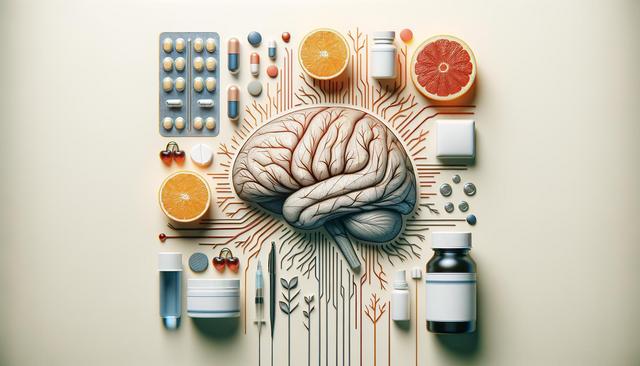Stress and Anxiety as Sleep Disruptors
One of the most common causes of insomnia and poor sleep is elevated stress and anxiety. This can be due to work pressure, personal issues, or even underlying mental health conditions. When the mind is overstimulated, it becomes difficult to relax enough to fall asleep or maintain quality sleep through the night. Stress triggers the release of cortisol, a hormone that keeps the brain alert, making restful sleep elusive. Many find themselves asking, “why can’t I sleep at night anymore?” without realizing that mental strain is a major contributor. To counteract this, establishing a calming bedtime routine and exploring options like the Calm app sleep solutions can help create a more restful environment.
Additionally, practices such as mindfulness and meditation have gained popularity for their positive impact on sleep. Apps offering Headspace guided sleep meditations provide structured sessions that gently lead individuals into a relaxed state, making it easier to unwind and transition into sleep. These tools can be especially useful for those dealing with racing thoughts or chronic worry at bedtime.
Disrupted Sleep Schedules and Poor Sleep Hygiene
Another leading factor in disrupted sleep is inconsistency in daily routines and poor sleep hygiene. Irregular bedtimes, excessive screen time before sleep, and late-night caffeine intake all interfere with the body’s natural circadian rhythm. This can lead to difficulty falling asleep or waking up frequently during the night. Over time, these habits accumulate and manifest as chronic sleep issues. For those wondering how to fix sleep problems naturally, small behavioral changes can make a significant difference.
Consider implementing the following:
- Stick to a consistent sleep and wake time, even on weekends.
- Limit screen exposure at least an hour before bedtime.
- Create a quiet, dark, and cool sleeping environment.
- Avoid caffeine and heavy meals in the evening.
Good sleep hygiene acts as a foundation for better sleep, and consistency is key. While it may take time to see results, adopting a disciplined approach often leads to long-term improvement in sleep quality.
Medical Conditions and Sleep Disorders
Underlying medical issues can also be at the root of poor sleep. Conditions such as sleep apnea, restless leg syndrome, chronic pain, and gastrointestinal disorders often interfere with rest. These ailments disrupt the sleep cycle and may cause frequent awakenings or prevent deep sleep stages. Recognizing the signs of sleep deprivation adults may experience—such as irritability, reduced focus, and daytime drowsiness—can prompt timely medical evaluation.
If you suspect a medical condition is affecting your sleep, consult a healthcare provider. Sleep studies, blood tests, or physical exams may be necessary to diagnose and treat the issue. Treating the root medical cause often brings significant relief and can restore a more consistent sleep pattern.
In addition to medical treatment, combining lifestyle adjustments and supportive tools like Headspace guided sleep meditations can enhance the overall approach to managing sleep disorders. Blending multiple strategies often leads to more sustainable results.
Lifestyle Factors and Their Impact on Sleep
Lifestyle choices have a profound impact on sleep quality. A sedentary routine, excessive alcohol consumption, and irregular eating patterns all contribute to disrupted sleep. Physical activity during the day helps regulate the body’s sleep-wake cycle, while alcohol, often mistaken as a sleep aid, actually fragments sleep and reduces overall quality. Late-night snacks or inconsistent meal times can also affect digestion and interfere with restful sleep.
To encourage healthier sleep patterns, consider the following lifestyle adjustments:
- Engage in at least 30 minutes of moderate physical activity daily.
- Limit alcohol intake, especially in the hours leading up to bedtime.
- Maintain regular meal times and avoid heavy meals late at night.
- Practice relaxation techniques to wind down in the evening.
These changes, though simple, can significantly improve sleep quality over time. When paired with calming tools like the Calm app sleep solutions, they form a comprehensive approach to tackling sleep disturbances caused by lifestyle factors.
Environmental and External Influences
The environment in which we sleep plays a crucial role in sleep quality. Noise pollution, excessive light, and uncomfortable bedding can all interfere with the ability to fall or stay asleep. Additionally, external pressures such as work travel, parenting responsibilities, or living in a high-stress environment can exacerbate sleep issues. For those frequently asking, “why can’t I sleep at night anymore,” evaluating the sleep environment is an essential step.
Here are some ways to optimize your sleep space:
- Use blackout curtains or an eye mask to block light.
- Invest in a comfortable mattress and supportive pillows.
- Use white noise machines or earplugs to mask disruptive sounds.
- Maintain a consistent room temperature, ideally between 60–67°F (15–19°C).
Incorporating these changes can help create a more restful setting, making it easier to fall and stay asleep. For added support, guided options like Calm app sleep solutions or Headspace guided sleep meditations can further aid in setting a peaceful bedtime routine.




Leave a Reply